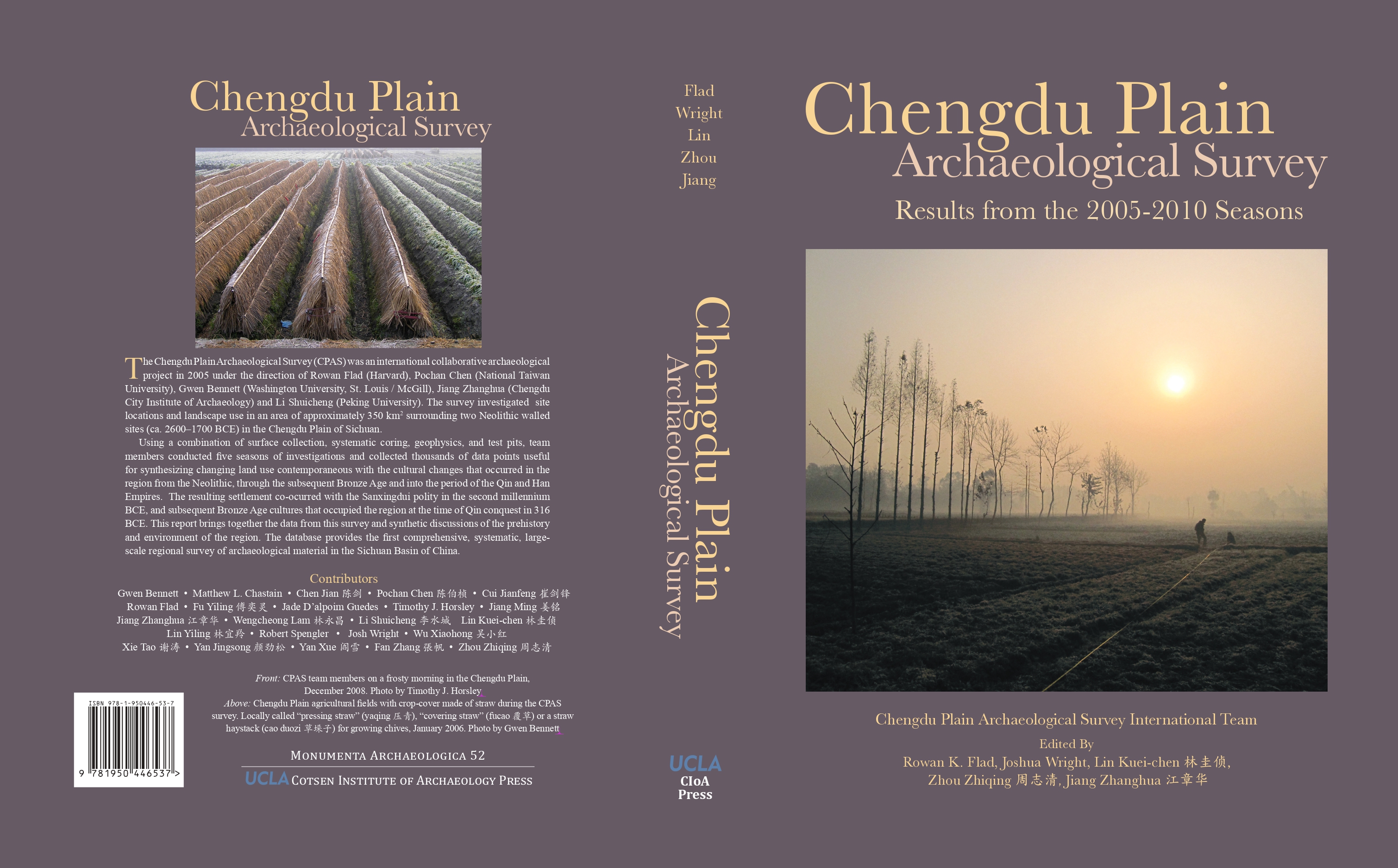The Cotsen Institute of Archaeology Press (UCLA) has announced the forthcoming volume Chengdu Plain Archaeological Survey: Results from 2005–2010, scheduled for publication in November 2025 as part of the Monumenta Archaeologica series (vol. 52). Edited by Rowan Flad, Joshua Wright, Kueichen Lin, Jiang Zhanghua, and Li Shuicheng, the volume presents the results of one of the most extensive regional archaeological surveys ever undertaken in Southwest China.
The Chengdu Plain Archaeological Survey (CPAS) was an international collaborative project that carried out five seasons of multi-method fieldwork between 2005 and 2010. Directed by Rowan Flad (Harvard University), Pochan Chen (National Taiwan University), Gwen Bennett (Washington University in St. Louis / McGill University), Jiang Zhanghua (Chengdu City Institute of Archaeology), and Li Shuicheng (Peking University), the project investigated approximately 350 km² centered on two late Neolithic walled sites—Pi Xian Gucheng and Yufucun (ca. 2600–1700 BCE).
Project Scope and Methods
The CPAS employed a combination of:
-
systematic surface collection,
-
subsurface coring,
-
geophysical prospection, and
-
targeted test excavations.
These complementary methods produced thousands of data points documenting landscape use from the Neolithic through the Bronze Age and into the Qin and Han periods. The survey results illuminate the long-term processes that contributed to the rise of the Sanxingdui polity and the broader cultural developments of the Sichuan Basin.
Significance
Because the Chengdu Plain is dominated by wet-rice agriculture and heavily modified anthropogenic soils, archaeological materials are often difficult to detect. The CPAS represents the first large-scale, systematic regional survey in this environment, providing an indispensable foundation for understanding regional settlement dynamics, landscape transformation, and the emergence of social complexity.
The forthcoming volume synthesizes the project’s data, methods, environmental analyses, and regional interpretations, offering a landmark reference for scholars working on Southwest China’s prehistory and early history.
Further Information and Digital Resources
More information about the volume can be found on the UCLA Cotsen Institute of Archaeology website:
🔗 https://www.ioa.ucla.edu/content/chengdu-plain-archaeological-survey
A companion open-access dataset, hosted by Open Context, provides survey records, spatial data, ceramics analyses, and GIS layers generated by the project:
🔗 https://opencontext.org/projects/968ea7e8-d521-4b4c-951c-01adcac7307f

